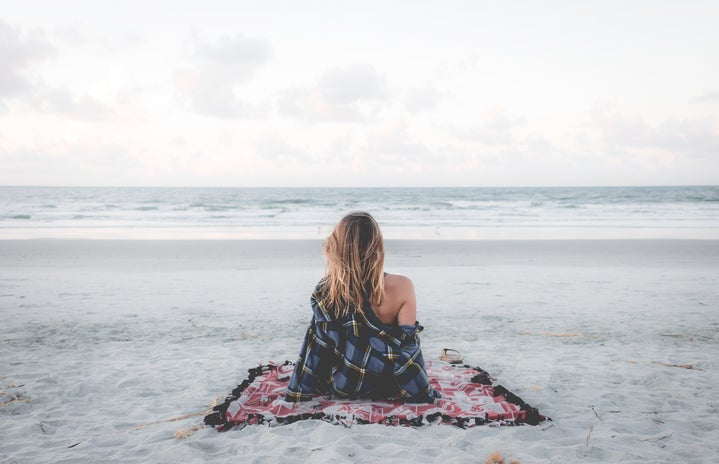Everyone has mental health, and everyone’s mental health looks and feels a little different. I’ve spent the majority of my teenage years and all of my adult life struggling with anxiety and depression. A massive part of my journey has been owning my mental health issues as part of myself, and being able to talk about them. I think it’s really empowering for people to understand where you’re coming from, and for us to really see that everyone really is fighting a battle that you don’t know about. That’s really why I’m writing this article: as a way to express my journey, but also as a way to encourage more truly open conversations about mental health and a more understanding attitude.
When I was first diagnosed with anxiety and depression, I was worried that I didn’t look like I fit into that box. I was a confident public speaker, extremely extroverted and found a lot of joy in spending my time with other people. I was told I was faking it, or that my issues weren’t really that bad. What I didn’t know then is that the terms we apply to mental health are incredibly blanketing. One person diagnosed with the same health issues to me on paper may look and act completely different. That doesn’t make either experience less valid. I didn’t have to tick every box of what was, and still is, expected of a depressed or anxious person. That’s something I still have to remind myself of every day. My experience is valid, and so is yours.
The majority of people we meet have no idea who we really are: the person who we are when we’re alone in our bedrooms, what we say to ourselves in our own heads. But that doesn’t stop anyone from thinking that they do. It also doesn’t make it any easier for people struggling with mental health issues.
I really struggled at high school. Partly due to my mental state, I felt like everything other people said about me must be true. That everyone around me knew me better than I knew myself. I know how ridiculous it sounds, because how could somebody we’ve spoken to maybe once or twice know us better than we know ourselves? I can look back and see that those people were bullies who didn’t realise the full force of their words, but it felt like they had uncovered a part of me I didn’t even know about. For all of these reasons, I was honestly petrified of people. But I was also desperate for them to like me. You can see how that’s an awful catch-22. The saying that ‘some people won’t like you, and that’s okay’ just didn’t translate in my brain. Being completely honest, it still doesn’t and it completely crushes me to know that I am almost certainly disliked by someone. This was only made worse by the fact that I honestly had no idea who I was – I was too wrapped up in being the person that other people wanted me to be.
That’s how it started. It then became debilitating. I didn’t want to leave my house. I didn’t want people to see me. I could only see myself as the worst parts that other people saw in me. I spent almost a year out of high school and I felt like life wasn’t worth it anymore. I was angry all the time. I didn’t even want to get better. It had a physical effect on my body, and zapped all my energy out from under my feet. At the time, I was given every other potential diagnosis under the sun. I think nobody wanted to admit that it was mental health issues, even though that was the obvious outcome looking back. I don’t remember that year of my life at all.
From then, I’ve had counselling and taken medication. I still take medication and talk to somebody once a week. I’ve accepted this is a part of me and my mental health looks a lot different now. But I’m still depressed. I’m still anxious. I still care way too much about what people think of me. I still have days, sometimes weeks, where I have to be forced out of bed. I still have moments where I’m convinced I’m unlikeable, where I feel useless and want to hide my face from the world because I can’t see it ever getting better.
The way my anxiety and depression looks changes for me all the time. That’s why I can honestly say that other people’s expectations of what mental health issues look like is complete rubbish. I’m a confident, bubbly person with anxiety. I can be energetic and crazy, but I’m still depressed. It’s an ongoing battle for me. What the label implies does not define you. I hope this article has reminded anyone out there struggling of that, and also reminded you that you never, ever fully know somebody’s situation – whatever it may look like.


